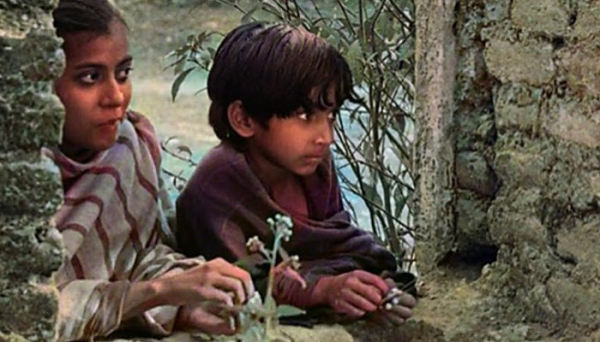Sir — Life is not always better in technicolour. Colourizing old photographs and films is not novel, but with the advancement in AI technology, it has become more common. Section of Satyajit Ray’s classic, Pather Panchali, were recently colourized. But is it possible to capture the tonal quality and the shade of light of a particular day in the past without having been there? After all, colour and black-and-white photographs are affected differently by different shades and strengths of light. One fails to understand why the black and white originals cannot be appreciated for their brilliance.
Sohini Sarkar,
Calcutta
Invisible victims
Sir — As India sets out on the path of ‘Unlock 1’, it is important to look back at some of the near invisible fallouts of the lockdown. While there is much talk about how the economy has suffered, and the plight of migrant labourers who paid a steep price for the government’s callousness, little is being said about the sufferings of middle-class women. Studies have now emerged to show how article submissions in academic journals from women saw a steep decline during the lockdown. Another survey shows that women bear an unfairly large share of the burden of deterioration in mental health during the lockdown. All this points to one thing — women still have to shoulder a lion’s share of household chores and caregiving within the domestic setup. Further, since women are paid less than their male counterparts — this is not taking into account the hours of free labour they put in at home — even single women had a hard time balancing work and life on a tight budget.
What is worse, more women became victims of cybercrime and domestic abuse during the lockdown than ever before. It took a crisis the size of a global pandemic to show that the more things change, the more they remain the same — women across the globe are still given the short end of the stick.
Yashodhara Sen,
Calcutta
Sir — Women in India already have a precarious position in the family. A majority of them are disempowered — their labour, both at home and outside, is unpaid and overlooked. As such, even though they may contribute significantly towards earning a family’s daily bread, they are seldom considered breadwinners. Consequently, they have little to no say over the division of resources. Studies in the past have shown that eating last is one of the reasons for high levels of malnutrition in women.
Given their marginalization within the family structure, women are most likely to be forced to be caregivers for those who have contracted the virus and are quarantined at home. This makes them vulnerable to infection and also to violence if they refuse to carry out these duties. Women and their problems continue to be invisible to the rest of the world.
Shreya Behera,
Rourkela
Hidden away
Sir — The refusal of the Prime Minister’s Office to provide information regarding money received by the PM-Cares fund in response to a Right to Information application, once again, shows the lack of transparency in the current dispensation. How can a fund, created by the prime minister for the welfare of the people, not be a public authority? The refusal to disclose details only raises suspicion. A fund that comprises donations by people of this country cannot be hidden away from the public. They have the right to know where the money is coming from and how it has been utilized so far.
Yousuf Iqbal,
Calcutta
Sir — The PM-Cares fund is not a public authority according to the Prime Minister’s Office — yet, its contributors are the ones who make up the Indian public. The fund has, as its ex-officio chairman, the prime minister of the country, Narendra Modi; its trustees were supposed to be the Union home minister, Amit Shah, the defence minister, Rajnath Singh, and the finance minister, Nirmala Sitharaman — all foremost among India’s public servants, who have been elected to office by the public. A large share of the fund’s resources also comprises donations from public sector companies — this should legally bring it under the ambit of the RTI law, which mandates that any “body owned, controlled or substantially financed... by funds provided by the appropriate government” shall fall under the purview of the RTI Act.
Fiscal transparency and ‘honesty’ were two of the planks on which the current dispensation stormed to power in 2014. Supporters of Modi were quick to point to his honesty and his administrative capabilities whenever any mention was made of his complicity in the Gujarat pogroms. If the government’s blatant refusal to be transparent about matters of finance does not act as an eye-opener for those who claimed to vote him to power in the hope that corruption would be cleansed from the system, perhaps the current GDP rate will shake their belief. If it does not, then there is little hope for India’s future. Already we have gone back several decades, economically, socially and intellectually. The government must be held accountable for its actions before it is too late to save democracy.
Aditya Bannerjee,
Gurgaon











